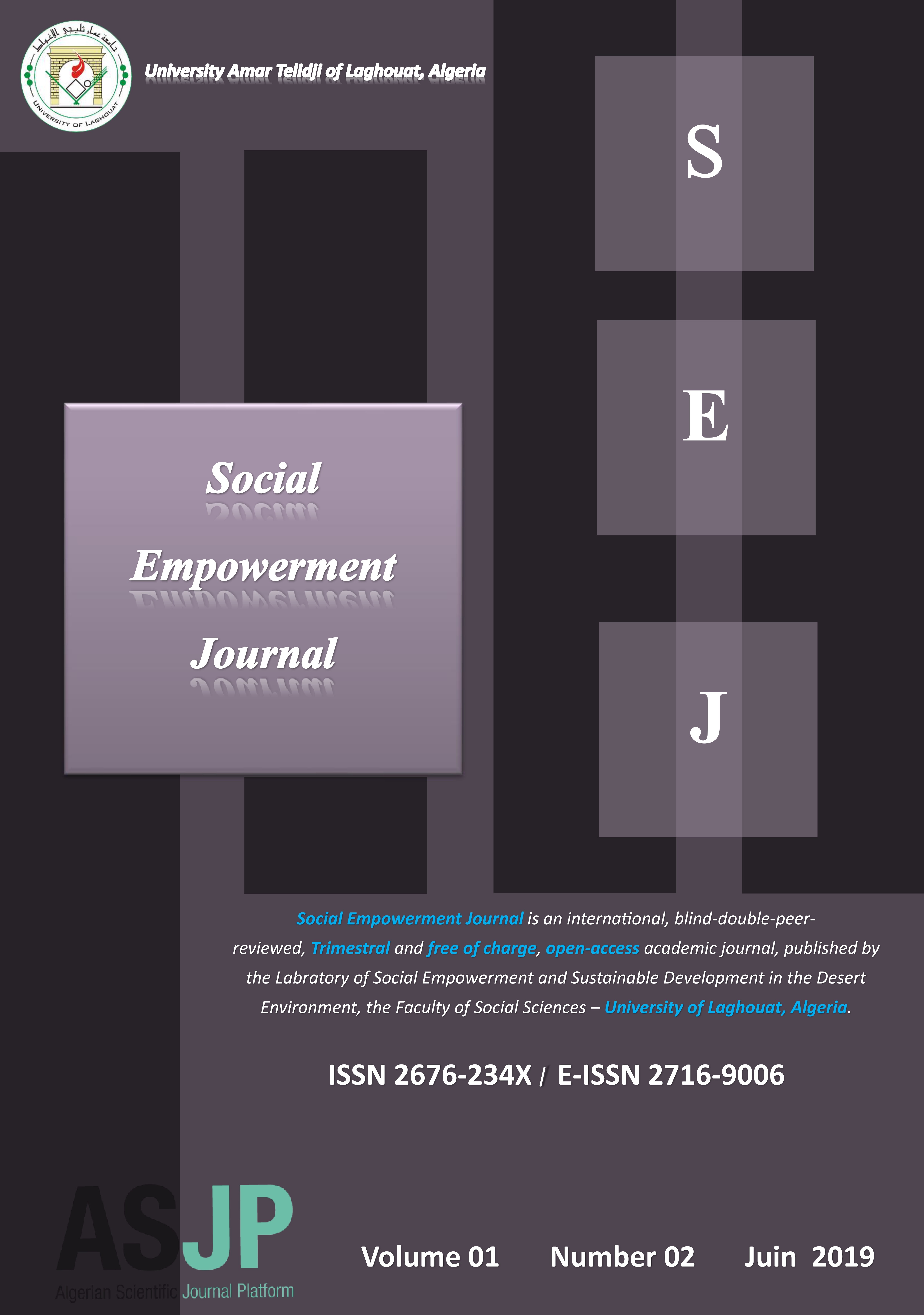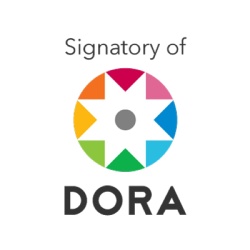التعليم الإلكتروني كرهان فاعل في العملية التعليمية التعلمية:الفصول الافتراضية أنموذجا
التعليم الإلكتروني كرهان فاعل في العملية التعليمية التعلمية:الفصول الافتراضية أنموذجا
الملخص
تهدف هذه الدراسة إلى الوقوف على الدور الذي يؤديه التعليم الإلكتروني في العملية التعليمية التعلمية ممثلا في أهم أدواته وتقنياته وهي الفصول الافتراضية، إذ تمكن هذه الأخيرة من حل العديد من المشاكل التي قد تعترض العملية التعليمية مقارنة بالفصول التقليدية نظرا للدور الفاعل الذي تؤديه للمعلم والمتعلم على حد سواء، والفوائد التعليمية التي تنطوي عليها الفصول الافتراضية بناءً على ما توصلت إليه الدراسة.
التنزيلات
المراجع
- Arabic references in English:
Amjad, Q. (2018, November 4). The importance of e-learning, its characteristics, objectives, advantages, and disadvantages. Retrieved from http://al3loom.com/?p=12948
Akkad, A. (2018, November 7). E-learning and contemporary challenges. Retrieved from https://www.google.com/url?sa=t&rct=j&
Al-Ghareebi, Y. B. M. B. A. (2008). The impact of teaching using three types of electronic classrooms (interactive, collaborative, and integrative) on the achievement of fifth-grade students in mathematics (Unpublished master’s thesis). Department of Curriculum and Instruction, College of Education, Umm Al-Qura University, Saudi Arabia.
Virtual Classrooms: Solutions for e-learning and training. (2018, November 10). Retrieved from http://blog.naseej.com/2013/05/22/
Virtual Classrooms. (2018, November 14). E-learning blog. Retrieved from http://mh1440.blogspot.com/2009/11/blog-post_15.html
Al-Qahtani, I. B. S. B. H. (2010). The reality of using virtual classrooms in distance education programs from the perspective of faculty members at King Abdulaziz University in Jeddah (Unpublished master’s thesis). Umm Al-Qura University, Saudi Arabia.
Krar, A. R. S. M. (2012). The standard criteria for building e-learning systems. Arab Journal for Quality Assurance in Higher Education, 5(9).
Lounis, A., & Achalal, Y. (2011). The role of digital education in improving the performance of teachers and learners: A model for the professional environment. Journal of Humanities and Social Sciences, University of Ouargla. Special Issue: Computer and Information Technology in Higher Education.
Mahmoud, A. L. (2018, November 10). E-learning as an effective tool for improving higher education. Retrieved from https://www.google.com/search?q
Makram, M., & Hani, S. E. (2016). The impact of the synchronous and asynchronous virtual classroom styles on achievement and the development of skills for creating educational games for kindergarten students. Journal of Educational Sciences, Part 1, 1(01).
Hegazi, T. A. M., & Hendaoui, S. (2016). Quality standards for Blackboard Collaborate virtual classrooms from the perspective of faculty members at King Saud University. The Sixth Arab International Conference for Quality Assurance in Higher Education.
Al-Hassan, I. E. K., & Ashabi, H. A. M. N. (2017). The reality of using virtual classrooms in distance education programs from the perspective of faculty members at Sudan Open University. Journal of Arab Universities for Education and Psychology, 15(1).
Al-Hanjouri, M., & Al-Nabaris, B. (2014). The interaction of university instructors with e-learning tools. Journal of Excellence and E-Learning, Islamic University, Gaza, 3(03).
Al-Zain, U. S. (2016). The shift to the digital age: Cognitive progress or methodological regression? The 11th International Conference on Learning in the Digital Age, Tripoli, April 22-24, Lebanon.
Al-Saidi, M. A., et al. (2017). The impact of e-learning in teaching mathematics on academic achievement for fifth-grade students in Oman. International Journal of Educational Research, 6(4).
Al-Sufyani, M. B. O. A. (2008). The importance and use of e-learning in teaching mathematics at the secondary level from the perspectives of teachers and educational supervisors (Unpublished master’s thesis). Department of Curriculum and Instruction, College of Education, Umm Al-Qura University, Saudi Arabia.
Al-Shuraimi, M. H. (2018, November 11). Virtual classrooms (virtual reality). Retrieved from http://eama1434.blogspot.com/2013/04/blog-post
Al-Othman, A. B. A., & Al-Mas'ad, A. B. Z. (2017). Incentives and obstacles of e-learning in university teaching from the perspective of faculty members at the College of Education, King Saud University. International Journal of Educational Research, 41(1).

هذا العمل مرخص حسب الرخصة Creative Commons Attribution-NonCommercial 4.0 International License.









